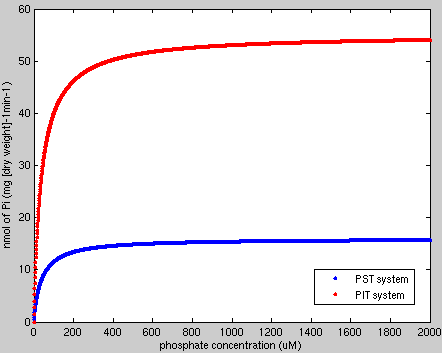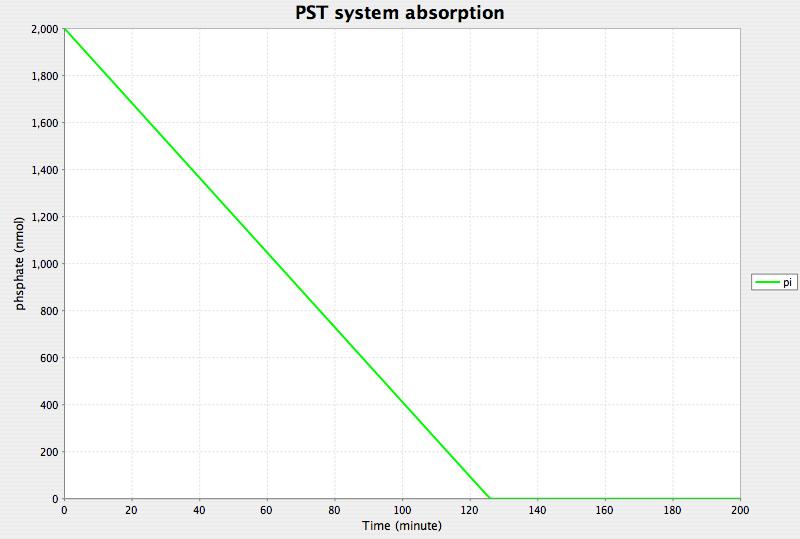Team:NYMU-Taipei/Project/Phosphate/Simulations/Phosphate
From 2008.igem.org
(Difference between revisions)
(→Simulation of Phosphate Absorption in Human) |
(→PST alone in high phosphate condition) |
||
| Line 19: | Line 19: | ||
=== PST alone in high phosphate condition === | === PST alone in high phosphate condition === | ||
| - | [[Image:PST 2000nmol pi.jpg| | + | {| |
| + | | | ||
| + | [[Image:PST 2000nmol pi.jpg|600px]] | ||
| + | | | ||
| + | * PST system alone can reduce the environmental phosphate from 2000nmol to 100nmol within 2 hours | ||
| + | |- | ||
| + | |} | ||
Revision as of 08:57, 30 October 2008
Contents |
Transportation Efficiency of PIT and PST system
|
Phosphate Concentrations of normal and CKD patient
- Normal adult (0.81 to 1.45 mmol/L)
- Chronic Kidney Disease (CDK) patient (1.29 to 2.096 mmol/L)
- [http://www.merck.com/mmpe/sec12/ch156/ch156h.html Disorders of Phosphate Concentration by merck]
Simulation of Phosphate Absorption in Human
- assume 1g/L (dry weight) therapeutic bacteria in the human intestine
PST alone in high phosphate condition
|
 "
"

